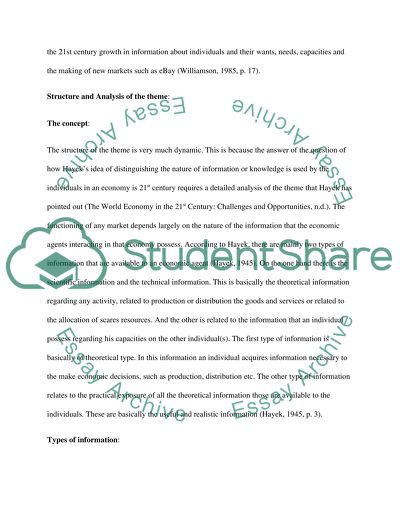Cite this document
(“Hayek's Idea of Information Use and Its Use in 21st Century Essay”, n.d.)
Retrieved from https://studentshare.org/marketing/1437696-hayeks-idea-of-information-use-and-its-use-in-21st-century
Retrieved from https://studentshare.org/marketing/1437696-hayeks-idea-of-information-use-and-its-use-in-21st-century
(Hayek'S Idea of Information Use and Its Use in 21st Century Essay)
https://studentshare.org/marketing/1437696-hayeks-idea-of-information-use-and-its-use-in-21st-century.
https://studentshare.org/marketing/1437696-hayeks-idea-of-information-use-and-its-use-in-21st-century.
“Hayek'S Idea of Information Use and Its Use in 21st Century Essay”, n.d. https://studentshare.org/marketing/1437696-hayeks-idea-of-information-use-and-its-use-in-21st-century.


